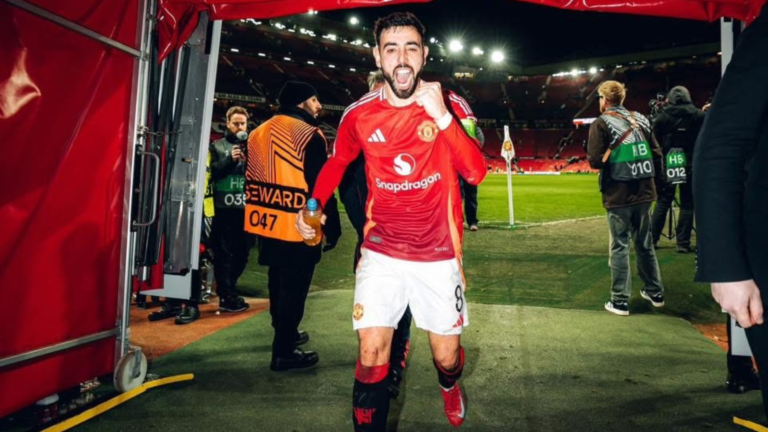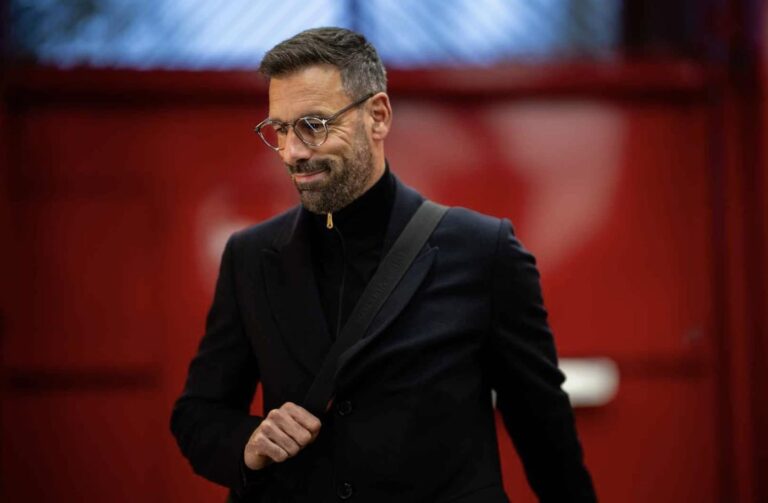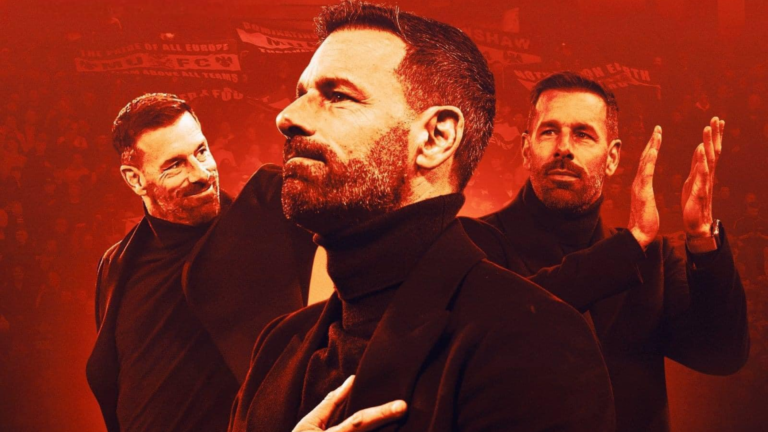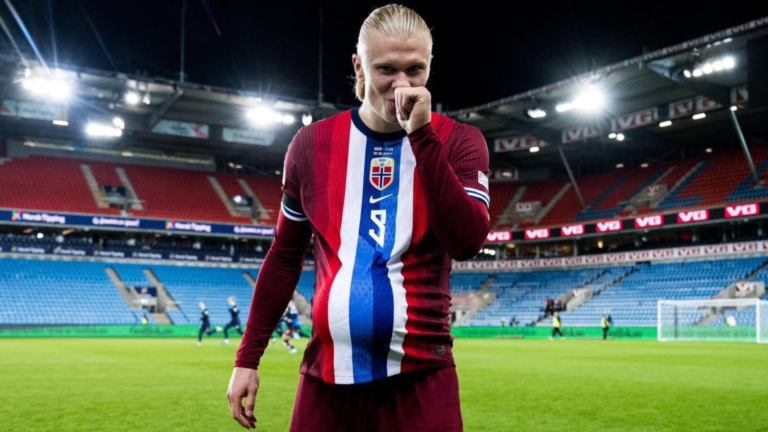“Portugal Triumphs 3-1 Over Poland”
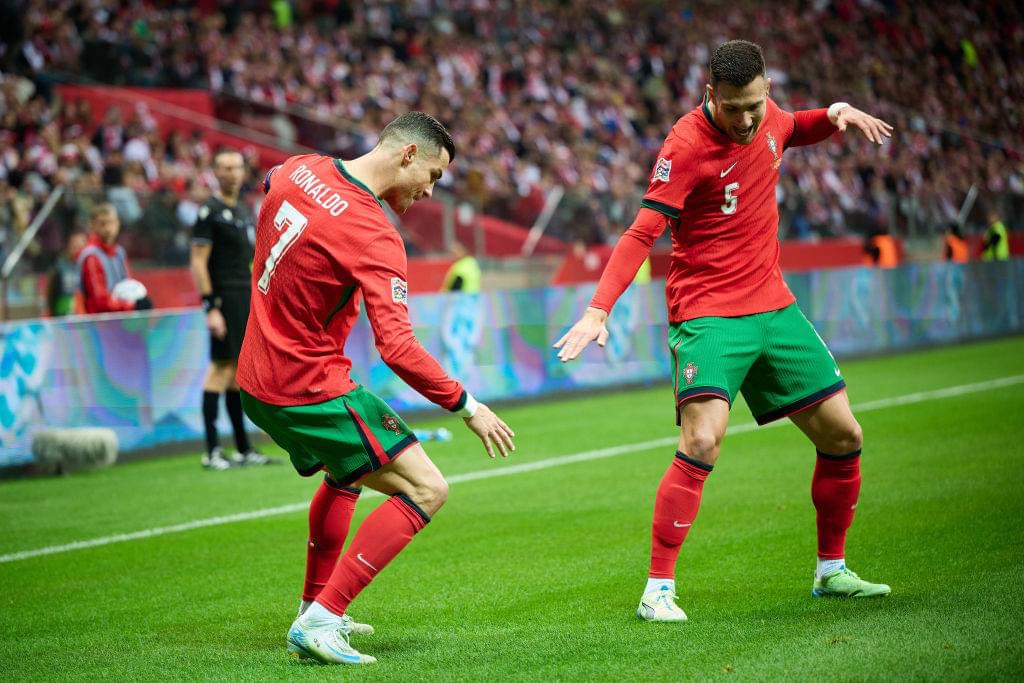
Portugal’s 3-1 victory over Poland in a crucial match was a thrilling display of attacking football, tactical acumen, and individual brilliance. The match took place in a competitive environment, with both teams looking to secure vital points for their respective goals, whether in qualification rounds or as part of a major tournament.
First Half: Tactical Setup and Early Dominance
Portugal entered the game with a clear intention to dominate possession, often utilizing the full width of the pitch to stretch the Polish defense. The team, under the guidance of their manager, relied heavily on their star player, Cristiano Ronaldo, as a focal point in attack, with support from players like Bernardo Silva and R.leāo. Poland, on the other hand, adopted a more cautious approach, aiming to absorb pressure and counter-attack using the pace and strength of their talismanic striker, Robert Lewandowski.
The first half saw Portugal assert control over the game, with fluid passing sequences and dynamic runs. Early on, Portugal created several opportunities but was unable to break through Poland’s defensive lines. Goalkeeper Wojciech Szczęsny was in top form, making crucial saves to keep the scoreline level. Despite Poland’s defensive resilience, Portugal’s relentless pressure eventually paid off.
Opening Goal: Portugal’s Breakthrough
The first goal came from a well-worked team move. Portugal’s midfield maestro, Bruno Fernandes, played a decisive pass that unlocked the Polish defense. The ball found its way to the feet of R.leāo, who, with composure, delivered an inch-perfect cross. Cristiano Ronaldo, ever the opportunist, was at the right place at the right time, meeting the cross with his head to give Portugal the lead. The goal was a testament to Ronaldo’s aerial prowess and positioning, qualities that have made him one of the game’s greatest finishers.
Poland’s Response: Fightback and Equalizer
Although Portugal had taken the lead, Poland was not about to surrender without a fight. They regrouped and found some joy in possession, with Lewandowski beginning to influence the game more. Poland’s equalizer came from a set-piece situation. A free-kick was delivered into the box, and despite Portugal’s best efforts to clear, the ball fell to the feet of Polish defender Kamil Glik, who fired a powerful shot past Portugal’s goalkeeper Diogo Costa. The goal injected life into the Polish side, and for a brief period, the match was evenly balanced.
Second Half: Portugal’s Class and Control
As the second half unfolded, it became clear that Portugal was determined to restore their lead. The Portuguese team regained control of the game, using their superior technical ability and tactical discipline to stifle Poland’s counter-attacks. Bruno Fernandes continued to pull the strings in midfield, while Portugal’s defense, led by the experienced Dias , remained solid.
The second goal for Portugal came as a result of a swift counter-attack. After winning possession in midfield, Portugal launched a fast break, with Bernardo Silva feeding the ball to Ronaldo. Ronaldo, showing his class, played a precise pass to the onrushing leāo, who made no mistake in finishing past Szczęsny. This goal showcased Portugal’s ability to transition from defense to attack with speed and precision, a hallmark of their playing style.
The Final Goal: Sealing the Victory
With the score at 2-1, Poland pushed forward in search of an equalizer, leaving spaces in their defense. Portugal exploited these gaps with ruthless efficiency. The third goal came as a result of a well-executed move down the right wing. A cross was whipped into the box, and Ronaldo, still a threat despite his age, was once again the finisher. His clinical strike gave Portugal a two-goal cushion and effectively sealed the game.
Conclusion: A Dominant Performance
Portugal’s 3-1 victory over Poland was a display of their attacking strength and tactical discipline. The team’s ability to control the game, dominate possession, and punish defensive mistakes was evident throughout the match. Cristiano Ronaldo’s two goals were crucial, but it was the overall team performance that stood out, with key contributions from players like R.leāo, Bruno Fernandes, and Bernardo Silva.
Poland, despite their spirited effort, was unable to keep up with Portugal’s pace and technical quality. Lewandowski, though involved in some moments of brilliance, couldn’t lead his team to a comeback. This result highlighted Portugal’s potential as a well-rounded team capable of both attacking flair and defensive solidity.
In summary, Portugal’s win was an important one, showcasing their attacking prowess, leadership from key players, and tactical maturity. Poland, while competitive, ultimately couldn’t contain Portugal’s quality, and the final scoreline reflected that gap.



